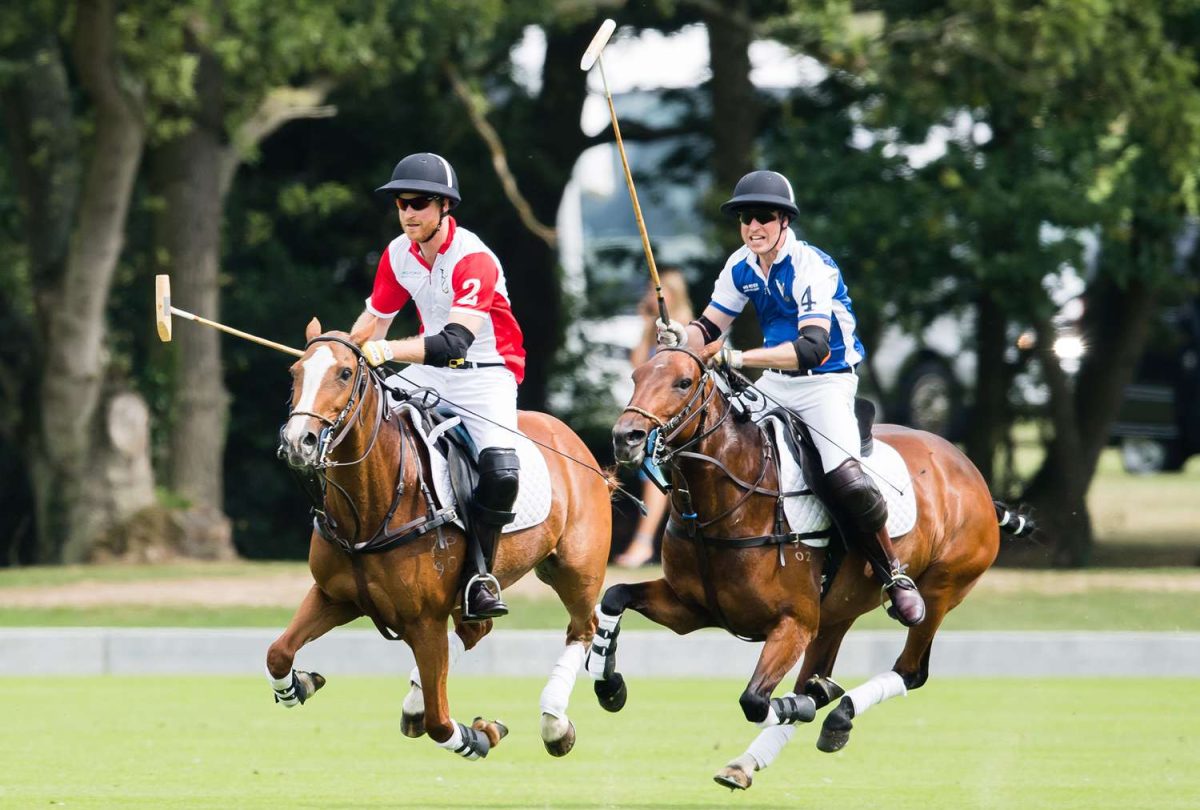The cheers of the crowd echoed as Andres Uribe pushed himself off the ground. His brother’s voice, but through all the noise, “Stand up and keep playing.” And that he did. The mallets continued swinging, the horses’ hooves pounded against the grass, and for the rest of the tournament, he continued as if nothing had happened. Weeks later, the pain struck without warning. His neck locked up, and he felt the bed swallow him whole, as his mom cried out. In that moment, the fall he thought he’d shaken off revealed its aftermath.
For Andres, polo was more than a sport; it was a part of his identity and a bond that was shared with his family. The fall that fractured his neck forced him to step away from the world, leaving him to figure out what life looked like without it. His experience shows how quickly everything can change, and facing the uncertainty with those closest to you.
When Andres first hit the ground, he didn’t think much of it. The fall had been quick and apparently harmless. What stood out to him was not the impact but the voices around him pushing him forward. “When I fell off the horse, I wasn’t even in pain,” he said. His brother immediately urged him to stand up, and his polo teacher asked him if he was good to go. Convinced nothing was wrong, he pushed himself back onto the horse. “So I immediately stood up, and I kept playing. I played polo all the tournament,” he said.
At the time, Andres believed he had walked away from the accident completely unharmed. He continued playing throughout the weekend tournament and for several weeks afterward. Looking back, he explained that he thought the discomfort was nothing more than regular muscle pain from training.
The real turning point came weeks later, when the pain struck without warning. “One day, after playing, my neck started hurting a lot, unbearably. I couldn’t even walk. I was just on the ground crying,” he said. In that moment, everything blurred: the noise, the light, and the world around him. The only thing he remembers clearly is his mother’s desperate voice shouting, “What’s happening? What’s happening?”
As the pain worsened, Andres went to the hospital searching for answers. Doctors ran exams, but the results didn’t come immediately, leaving him in limbo. He later learned the true extent of his injury. “They told me that I had a fracture on the C1 and C2… At first, I couldn’t believe it. I told myself it was impossible; it was two weeks ago. But then they explained that pain can start after accidents, not immediately,” Andres said [00:02:00].
The diagnosis forced him to face a reality he tried to ignore. What he thought was a temporary setback was actually a serious injury that would keep him away from polo for months. He admitted that accepting the recovery process would be one of the hardest parts.
Still, Andres found a way to adapt. Wearing a neck brace was uncomfortable at first, but soon it became a part of his daily routine. He said, “It was hard, but not too hard” [00:03:59]. He could sleep, eat, and even lift weights, as long as he was careful.
The fracture didn’t just change his polo season; it reshaped the way he looked at his own resilience. It was a moment that forced him to slow down and recognize how fragile life can be. During those months, his family became the foundation that kept him grounded. His mother stayed home from work for nearly a month, refusing to leave his side. “My family was very forgiving towards me… If I needed anything, they brought me food every day. They were with me,” he said [00:04:38].
His brother, who had been at his side the day of the fall, also became his closest companion during recovery. Andres explained that he leaned on him for daily conversations, something that helped distract him from the frustration of being sidelined.
Looking back, he knows the injury could have ended differently if Andres had not gone to the local hospital, Hospital San Vicente. “Maybe if I hadn’t gone to San Vicente to get checked, I would be telling a different story,” he said [00:05:18]. The accident may have forced him off the field, but it also gave him a deeper respect for life, his family, and the sport he grew up with.
Andres’ accident is more than just a story about polo; it reflects how quickly life can shift and how deeply identity is tied to the things we love. For him, polo was not only a sport but a family tradition and a source of belonging. Being forced to pause reminded him that even the strongest routines can be interrupted in an instant. His recovery became less about the neck brace and more about perspective, teaching him to balance risk with respect and to value the people who stand by him through uncertainty.
As he remembers the silence of lying still on his bed, his mother’s voice still echoes. Today, that worry reminds him not of fear, but of how close he came to losing everything in a split second.



